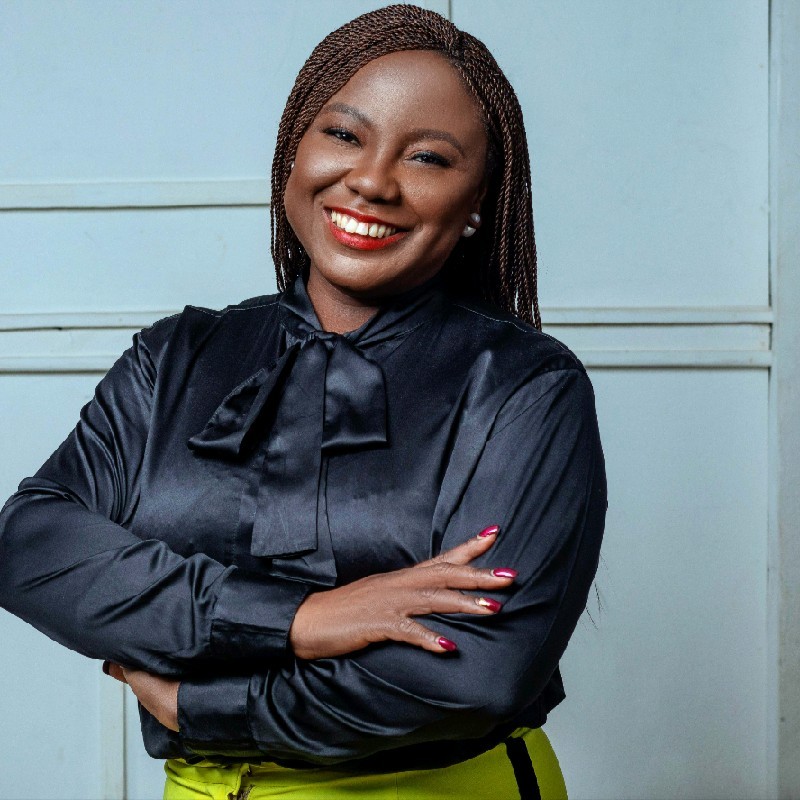In her earlier professional years, Bolaji Sofoluwe, now the founder and managing director of ETK Group, an African-focused business consultancy, encountered Mope Abudu, the visionary managing partner at AfriGloCal VC. Sofoluwe was immediately impressed by Abudu’s bravery and entrepreneurial spirit, viewing her as a role model. “She was someone I aspired to be like,” remarked Bolaji.
Their initial encounter evolved into a valuable mentorship. Abudu’s confidence in navigating crucial spaces and advocating for herself served as a source of inspiration for Sofoluwe. The mentorship proved reciprocal: Sofoluwe gained insights, while Abudu valued Bolaji’s perspective. This dynamic proved invaluable. “She allowed me to be vulnerable. She allowed me to express areas that I was struggling with. And then she was able to provide the adequate support that I needed to get past those frustrations,” Bolaji shared with Bendada during a call.
Beyond her leadership at ETK Group, Bolaji Sofoluwe extends her impact in various ways. She currently invests in women-led businesses as an angel investor and holds a board position at a prominent UK engineering firm, where she spearheaded the creation of a Women’s Forum. This initiative empowers women within the company to enhance their skills and pursue ambitious goals.
“If I hadn’t had a mentor like Mope, I don’t think I would have been able to transfer those skills that I’m transferring today,” says Bolaji. “And even though she’s no longer actively my mentor, I still call her my mentor.”
She advocates for mentorship and community building as crucial strategies to address gender bias in investment, not only in Africa but globally. These initiatives empower women-led businesses to secure the funding they deserve, she emphasized.
Experience with Women-Led Businesses:
Reflecting on your experience working with women-led businesses, what are your thoughts?
“I haven’t intentionally focused on women-led businesses, but a significant proportion of the over 15,000 businesses I’ve worked with have been led by women. Perhaps it’s because women are natural nurturers and developers.
We all aspire to see our families thrive, and many women are driven to create positive change, whether systemic or within their immediate environments. This entrepreneurial spirit extends beyond their businesses; they actively plan and invest in their personal growth as well.
My experience working with women-led businesses has been truly enriching. They often approach problems from unique perspectives and prioritize providing support and solutions. This assistance-oriented approach translates to practical solutions for everyday issues, which is a key factor in business success. Ultimately, solving real problems is what makes a business thrive.
In addition to their problem-solving skills, women entrepreneurs demonstrate remarkable resilience. As you likely know, navigating the business world as a woman presents significant challenges.”
Gender Funding Gap:
Despite continued advocacy and legislation, the gender funding gap persists. What do you think is the issue?
“At ETK, we’re hosting an event this Friday at the House of Lords to discuss the gender funding gap – it’s a global problem.
One factor contributing to the gap is limited access to networks for women. They’re often excluded from the ‘old boys club’ networks that can be crucial for securing funding.
Stereotypes also play a role in investment decisions. Believe it or not, some women pitching their businesses have been asked inappropriate questions, like whether they plan to get pregnant. It’s astounding that such things are even considered!
It’s perfectly reasonable to ask about a business continuity plan. However, a woman’s potential for pregnancy should have absolutely no bearing on investment decisions. These are precisely the invasive biases that hinder women from securing funding.”
Root Cause of the Funding Gap:
Limited representation in decision-making is another factor. Key positions in venture capital, private equity, banking, and investment banking are still predominantly held by men. This can lead to unconscious bias, where people tend to favor those who resemble themselves.
They tend to support people who seem similar to them, who share their thought processes, and with whom they can easily connect. When there’s no one in a decision-making position who identifies with you or understands your perspective, securing funding becomes much harder. These, in my view, are the key reasons behind the funding gap.”
Impact of Investing in Women-Led Businesses:
How do you view the impact of investing in women-led businesses?
“First and foremost, we must acknowledge that the gender funding gap isn’t just a women’s issue. It’s a critical factor in achieving sustainable economic development, not just for Africa, but globally.
Here’s why: Women are more likely to reinvest their profits. They invest in their education and the education of others, in healthcare and family well-being – the very pillars of a strong society.
Therefore, investing in women goes far beyond simply seeking equity returns. It has a profound and positive ripple effect.
From my perspective, policymakers need to move away from viewing gender equality as simply giving women a handout. Instead, they should recognize it as a strategic investment in sustainable economic development.
Source: Benjamindada



















Leave a Reply